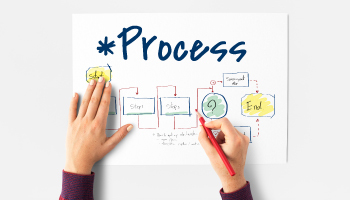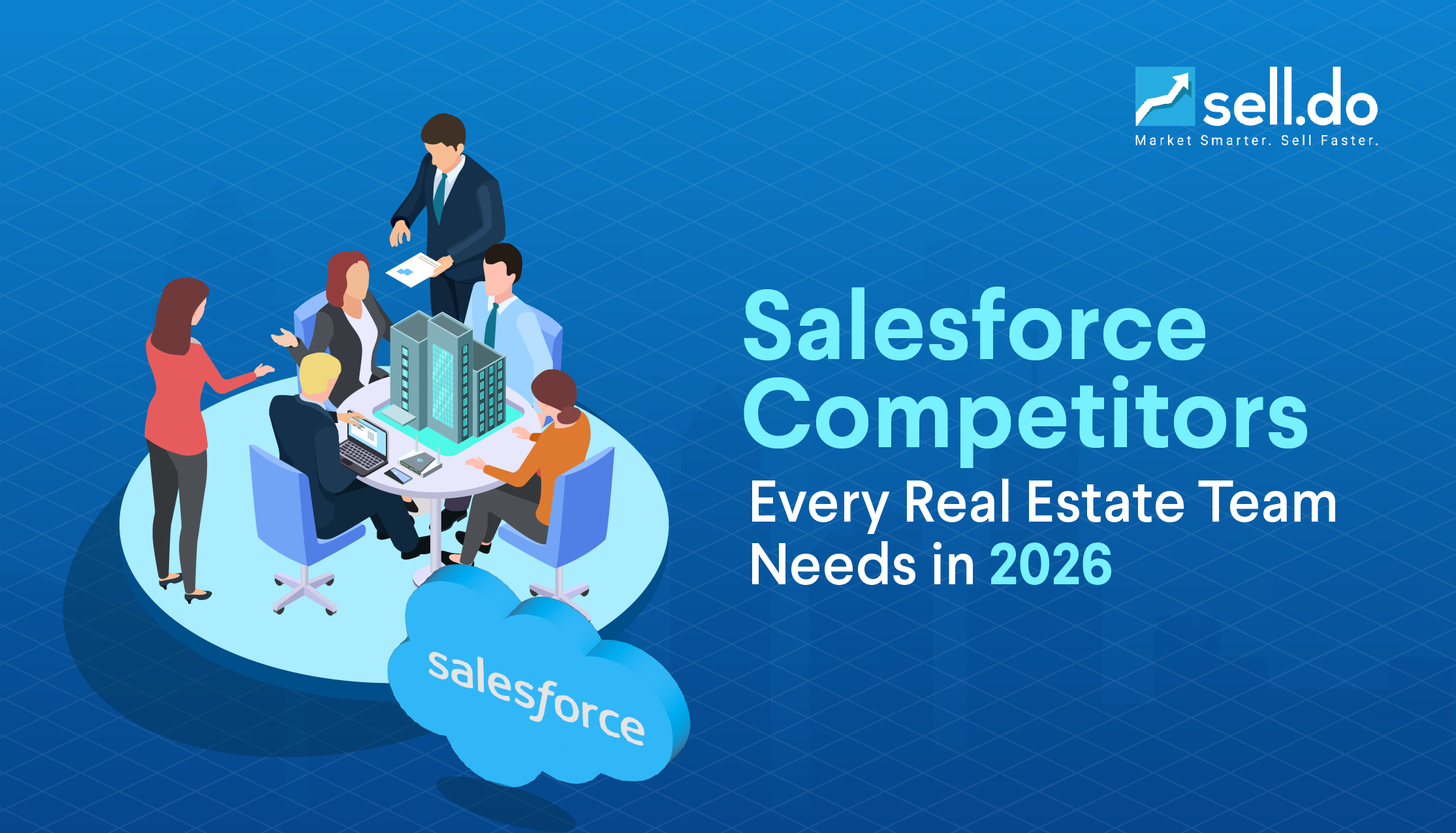While a Customer Relationship Management (CRM) system is just an online database for managing customers, it possesses the power to accomplish much more than that. While a CRM can do wonders for your organization, its implementation is a whole other ballgame. A Real Estate CRM implementation refers to the process of establishing a CRM system to track and manage a company's contact with present and future customers. CRM deployment is undertaken by businesses to enhance sales, generate more leads, and improve customer satisfaction.
Let's discuss how to create a solid CRM implementation plan in 7 easy steps.
-
Understanding CRM:
![Understanding-CRM_desktop.jpg]()
A CRM system is utilized to keep track of your interactions with the customers in a more structured and efficient manner. Implementing a CRM system paves the way to enhance the situation and effectively challenge new marketing and commercial methods. A CRM system should be an essential element of commercial companies today since it helps in improving and supporting internal procedures, strategies, and culture.
A CRM allows organizations to make a long-lasting connection with their customers in the Real Estate industry, thereby increasing the retention ratio. Real Estate CRM software offers a simple user interface for collecting and analyzing customer data, thus allowing organizations to tap on different categories of customers in a planned manner.
-
Ensure Everyone is On-Board with the Implementation:
![Ensure-Everyone-is-On-Board-with-the-Implementation_desktop.jpg]()
Getting your executive leadership team's buy-in and commitment to CRM deployment is vital to the investment's success. One of the top ten reasons CRMs fail is a lack of leadership support. C-suite members will be critical drivers when allocating budgets, specifying project timetables, and signing agreements with CRM suppliers. Employees also turn to CEOs to establish and express the company's strategic goals and ambitions.
The odds of a successful deployment are substantially better when your leaders are willing to vouch for the new CRM system and provide CRM implementation-related information.
-
Map out the goals:
![Map-out-the-goals_desktop.jpg]()
It’s vital to define your objectives for a CRM implementation strategy. It may be accomplished by considering your company's future strategy, present market demand, and benchmarks to identify success criteria. Two elements, however, must be at the heart of your CRM strategy: How is it going to engage your customers directly or indirectly? Is your whole organization aware, clear, and committed to the CRM?
An early project risk assessment might help you discover potential issues before they arise. Rate the failure in terms of impact/likelihood with your project team, and devise a contingency plan, including the number of critical users, the number of customers and contacts who will be imported in, and so on.
Having a clear plan that defines why and when you'll implement your real estate CRM software will pay off in the long term. Such a proactive plan will also guarantee that your CRM doesn’t miss the mark on doing your customers, employees, and organization the right job.
-
Make the Right Selection:
![Make-the-Right-Selection_desktop.jpg]()
One of the first steps to choosing a CRM is to create a list of possible software available on the market. Next, check that your requirements are met by CRM features and decide on a cost-benefit ratio. Choosing a CRM system just on the basis of the cost will not benefit you in the long run. Schedule demos, read reviews, and research your options to find a good CRM efficiently. You must adequately assess and record your company’s needs before deciding which system is best suited to satisfy them.
-
Deployment Roadmap:
![Deployment-Roadmap_desktop.jpg]()
Your CRM implementation approach should be broken down into smaller chunks, such as short, medium, and long-term user adoption targets. Begin with a small number of users and gradually increase the learning angle. During this phase, one may quickly find faults and fix them without experiencing any downtime.
As a helpful tactic, a practice to train the line teams with in-depth concepts shall help in increasing the number of members imparting the knowledge to their respective teams, thereby educating the whole organization about the CRM system.
-
System Training:
![System-Training_desktop.jpg]()
To enable smooth learning processes among teams, create an exclusive training program catering to the setup of your organization. A simple and successful technique is to combine face-to-face, online, practical, and having managers who can help their team. Allow enough time for the learners to grasp the system. Don't forget to gather feedback and improve. Try other tactics, such as taking a day off to get away from the daily grind and give the trainees some mental space. It is also critical to boosting trainee morale.
-
Deployment:
![Deployment_desktop.jpg]()
Do not hurry towards attaining future objectives after deploying your Real Estate CRM software. Allow time for users and customers to grasp the implementation. You may also employ vendor assistance to tweak or update the system as needed. Technical knowledge about the project internally is essential. For this, you may need to enlist the help of a CRM vendor. Make sure you understand the vendor's duties and other consequential scenarios and expenses that may arise.
Conclusion:
The process of setting up a new CRM system can be cumbersome. However, the integration benefits your businesses by bringing in repeat business and consumer loyalty in the long run. A robust CRM offers team members the information they need when they need it. The software solution also empowers you to save time and resources on your tasks and helps you make the right decision with powerful analytics for data-driven decisions.
To achieve the same, your team will need to deploy the right CRM that takes care of your notification emails analytics and determine other customer activities and interests, access to reviews, testimonials, and case studies to understand market trends and inclination toward different products and services.
Sell.Do comes as an excellent solution to India’s real estate businesses as the nation’s only complete end-to-end real estate PropTech solution made by industry experts. Sell.Do automate your sales and marketing cycle to maximize your process efficiency and achieve unmatched productivity. Most of it all, Sell.Do is very easy to integrate with any real estate business.





















Leave a comment
Comments (0)
Be the first one to comment.